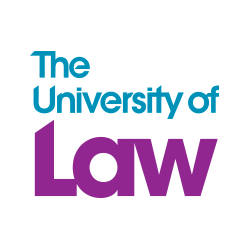Username or email *
Password *
Forgotten password?
[email protected]
+44 (0)20 8834 4579

How to Write A Standout Law Personal Statement
A law personal statement is essential when applying to enrol on an LLB law course as an undergraduate or an LLM degree as a postgraduate. Get advice and tips on writing good law personal statements.
Our Guide to Law Personal Statements
- Find out the word count and the right structure
- See how universities use personal statements
- Learn how to write and structure your statement
- Get more top tips on writing a knock-out statement
Jump to Section
- Deciding on Law
- How to Become a Lawyer
- Areas of Law
- Solicitor vs Barrister
- What is a Solicitor
- Becoming a Barrister
- Legal Executive
- What Is A Legal Secretary?
- How to Become a Judge
- Legal Apprenticeships
- Studying Law at University
- Law at Oxbridge
- Studying Law Abroad
- Personal Statement
- Law Research Techniques & Resources
- Commercial Awareness
- Law Work Experience
- Vacation Schemes
- Law Courses
- Non-Law Students
- PGDL (Conversion)
- Bar Training Guide
- Training Contracts
- Law Firm Applications
- Pupillage: a Guide for Aspiring Barristers
- Law Firm Insights
- Networking Guide
- Diversity In Law
You’ll need to write a law personal statement if you’re applying for the LLB or other types of law degrees via UCAS . You will also have to write one if you’re applying to study law at postgraduate level.
What is a Law Personal Statement?
The personal statement is a piece of writing which you send off with your UCAS application to different universities . It’s capped at 4,000 characters (so will often end up running for about one side of A4), and serves as the best way to differentiate yourself from other applicants to the most competitive courses. In short, it’s the personal statement which is the truly ‘personal’ part of your application. This is your chance to grab the attention of the admissions team, who will often use the personal statement as the easiest way to pick between candidates with other similar metrics (e.g. predicted A Level grades which meet the entry requirements ). Other universities ( Oxbridge specifically ) place even more emphasis on your personal statement, using it as a way to decide who to invite to interview (and then as a source of discussion during interviews). Put simply, it’s an important part of your application.
For law specifically, a subject which is known to be both competitive and highly academic, the personal statement is even more crucial. The University of Law have a page outlining some law personal statement tips , but this article seeks to present our views on some of the most crucial elements of a successful personal statement for studying law at university – from what you should do to what you shouldn’t, structure, content and more, this article will get you well on your way.
How Universities Use Your UCAS Law Personal Statement
If a lot of students applying for law degree courses have achieved the basic entry requirements, university admissions teams use UCAS law personal statements to decide who is more suited to their learning programme. Some universities take this a step further with, for example, with the LNAT , which is taken into consideration alongside your personal statement.
Some law schools will read every personal statement and score them. They then use this score alongside your qualifications and grades to decide whether to offer you an interview. Other law universities don’t give as much consideration to personal statements and will only use them to decide between students who have borderline entry requirements.
Law schools may refer to your personal statement on results day if you don’t get the grades you need. A good personal statement could be the difference in securing a university place if you don’t get the grades you hoped for.
Planning Your Statement
Plan a clear structure.
First thing’s first, you’re going to need a clear structure. There are a few reasons for this. First, having a clearly planned out structure before you start writing will limit the amount of ‘waffle’ you could accidentally end up putting into your writing (more on that in our next point). Second, a clear structure allows your reader (those university admissions teams) to enjoy the personal statement more by increasing the smoothness of the reading experience associated with a well thought out body of text (remember, they’ll be reading hundreds, if not thousands, of these). Third, you’re applying to study law – the personal statement is an excellent opportunity to demonstrate that you can produce well planned, structured writing (as is crucial for any humanities subject). The theme of the personal statement serving a dual purpose (presenting the content itself but also showcasing your writing abilities) will come up again throughout this article – it’s super important to bear in mind.
There is no one-size-fits-all structure that your personal statement should take, and you should allow yourself to be guided largely by the content you’re looking to present. It is a good idea, however, to feature a particularly catchy opening leading into an introductory section, a main body (structure however best suits the content) and at least a line or two of concluding material at the end.
Leading on from our last point, being concise is key. Not only does this allow you to demonstrate your clarity of writing (as all law students and aspiring lawyers need as a key skill ), but it also increases the amount of content (or explanation of that content) you’re able to pack into 4,000 characters. For example, have you written ‘on the other hand’? ‘Conversely’ is 2 words/7 characters shorter, and serves the exact same purpose. Also consider whether you’re repeating yourself. Conciseness is best achieved by proofreading.
Manage Your Tone
Throughout your personal statement, it’s best to take a relatively formal tone. Your content is the part that allows your personality and individualism to shine through. Also avoid humour – it’s simply too risky without knowing the preferences of the individual whose desk your personal statement will eventually land on.
Need Help With Your Statement?
Get Expert Guidance
Writing Your Statement
Proofreading is essential for a personal statement, and you’ll likely go through many rounds of drafts. Having concise writing is key (see the point above), but even more important is the fact your personal statement needs to avoid any errors in spelling or grammar. These are easily correctible and may reflect badly on you as a student applying to an essay-based subject at university. It’s fine if you personally struggle with spelling or grammar – see our next point for a way to combat that.
Get Feedback
Your personal statement, while being innately ‘personal’, is best improved by showing it to a range of people. Although there will naturally (and sadly) be a difference in the quality of assistance you will receive based on the quality of your sixth form/college, be proactive in seeking out the best people possible to read over it and give you feedback. Are there any teachers at your school who studied on the university course you now find yourself applying to? Can you find current students/alumni of that course on LinkedIn and ask if they’d be willing to spare a few minutes to glance over it for you? The more input you get (from people who have more experience than you on this topic), the more secure you’ll feel in defending why you’ve written what you have.
Capital Letter Checks
If you’ve successfully followed the tips above, you’re likely to have a personal statement with a great deal of specific references in it. There’s an easy way to roughly check this – visually scan down your personal statement and see how many capital letters there are. If you’ve got very few, it’s likely that you may have included a fair amount of ‘waffle’. If you can spot quite a few capital letters, that’s a sign that you’ve probably included the specifics – great job! Where ‘I’ve read many legal books’ might throw up a red flag, ‘I’ve read X and Y books’ means you’re on a great path.
Get to Know Your Course
Demonstrate your interest by improving your understanding
Perfecting Your Statement
Keep it personal.
Attempting to present a broad overview of your degree’s content (e.g. trying to do a broad sweep of UK legal history) is useless, impossible, and ultimately pretty boring to read. It also means you’ll end up with something that skims the surface of many things. Remember, this is a ‘personal’ statement. The best way to approach it is to drill down deep into one or two particular niches that interests you (again, rather than skimming the surface of a huge range of topics). This keeps your personal statement fresh and interesting to read for the admissions team. Have you developed an interest in a particular piece of legislation that’s just come out? You could spend a paragraph going into some detail here – and the contents of that paragraph are what comes next.
Show – Don’t Tell
This is one of the most important pieces of advice possible. Once you’ve found a particular area of interest to talk about in your personal statement, you need to back that up with specific, tangible examples. Some people will also advise that you try and keep this content relatively recent in order to demonstrate an engagement with world affairs. Although not compulsory, this can still be a useful avenue to explore. ‘I’m really interested in the new Online Safety Bill’ is generic, proves very little, and could apply to anyone. ‘My interest in the new Online Safety Bill led me to read X book and watch X documentary, after which I considered X issues’ is specific to you, demonstrates a tangible interest in these topics, and is simply far more interesting to read. This idea of constantly building on what came before allows you to demonstrate a thread running throughout your essay (helping your structure present itself as clear in the process). This is where you’ll often hear people say that your personal statement needs to ‘flow’.
The range of things that you could ‘show’ is vast – books related to your course are a great starting point. If you know one of your top choice universities employs a particularly prominent member of faculty, perhaps you’d be interested to have a look at their writing and include that too. Other such content could include documentaries, conferences, events, or work experience. Now your personal statement is looking far more personal.
Academic vs Extra-Curricular
Balancing the proportion of academic to extra-curricular content in your personal statement is not an easy task, especially when you’re likely to hear that certain top universities like Oxbridge heavily favour the former. Law is also an intensely academic subject. With that in mind, it’s only natural to place a heavy emphasis on the academic side. However, if you’ve got extra-curricular content which you feel you could successfully link to your degree course in some way (e.g. ‘For my swimming club, I researched current health and safety regulations to make sure we are compliant’ – ‘I am in a swimming club’, conversely, doesn’t hold much value), then do feel free to include that too.
In short, while writing law personal statements may appear a challenge, following our top tips will allow your application to excel. Be clear, be specific, be you.
Watch this video from Solent University Law School, Southampton, which is packed with great tips on how to write a strong personal statement for law.
LNAT Packages
Save 20% on all the best LNAT Prep.
LNAT Tutoring
Get 1-2-1 LNAT help from our law tutors.
LNAT Courses
Join our half-day LNAT Workshops.
Online Course
Learn LNAT at your own pace.
Studying and Practising Law Abroad
Top legal research techniques & resources for law students.
Loading More Content
- Personal statement advice: law
Applying to university
- Getting started
- UCAS Tariff points
- Calculate your UCAS Tariff points
- Amendments to the Tariff consultation
- Offer rate calculator
- How to use the offer rate calculator
- Understanding historical entry grades data
- Admissions tests
- Deferred entry
- Personal statement advice and example: computer science
- Personal statement advice: English
- Personal statement advice: Midwifery
- Personal statement advice: animal science
- Personal statement advice: biology
- Personal statement advice: business and management
- Personal statement advice: chemistry
- Personal statement advice: dance
- Personal statement advice: dentistry
- Personal statement advice: drama
- Personal statement advice: economics
- Personal statement advice: engineering
- Personal statement advice: geography
- Personal statement advice: history
- Personal statement advice: maths
- Personal statement advice: media studies and journalism
- Personal statement advice: medicine
- Personal statement advice: modern languages
- Personal statement advice: music
- Personal statement advice: nursing
- Personal statement advice: pharmacy
- Personal statement advice: physiotherapy
- Personal statement advice: politics
- Personal statement advice: psychology
- Personal statement advice: social work
- Personal statement advice: sociology
- Personal statement advice: sports science
- Personal statement advice: statistics
- Personal statement advice: teacher training and education
- Personal statement advice: veterinary medicine
- Personal statement: finance and accounting
- Filling in your application
- Staying safe online
- How to write a personal statement that works for multiple courses
- How To Write Your Undergraduate Personal Statement
- Fraud and similarity
- How to start a personal statement: The attention grabber
- How to end your personal statement
- Introducing the personal statement tool
- Personal statement dos and don'ts
- What to include in a personal statement
- Using AI and ChatGPT to help you with your personal statement
- Using your personal statement beyond a university application
- Carers, estranged students, refugees, asylum seekers, and those with limited leave to remain
- Personal statement guides
- References for mature students
What should you write in a law personal statement?
Bringing your interest in law to life is key. If you’re already studying law, then you might want to talk about topics you've enjoyed and any wider reading you've done.
Haven't studied law at A level (or equivalent)? Don't worry – there aren't usually subject-specific entry requirements for law degrees. Learn more about the 'unspoken rules' of university entry requirements here.
Dr Murphy suggests these other ways to demonstrate your engagement with law:
- A book you’ve read that had a legal dimension to it.
- Work experience, which could be in a solicitor’s firm or a mini-pupillage, but equally could be shadowing at your local Citizens Advice Bureau (CAB), some charity work, or even your Saturday job.
- Visiting your local magistrates' court, the Crown Court, or your nearest employment tribunal. As Dr Murphy puts it, ‘the English legal system is open and receptive to those wishing to experience law in action’.
- Join a debating club, or start your own. If you have the opportunity to conduct a personal project or the Extended Project Qualification (EPQ) , consider giving it a legal focus.
But don't simply list what you've done. Write about relevant experiences in your statement in a reflective way. What did you see? What did you learn? Why did it enhance your interest in law?
What else to include in your law statement
- Why you want to study law: bring this to life by focusing in on aspects of law that are of particular interest to you, how it relates to your current studies, and what additional reading you've embarked on. But keep it concise – three or so paragraphs is probably fine.
- How your skills fit: demonstrate that you have, or are developing, the skills needed for success in law – from public speaking to persuasive writing, or your meticulous attention to detail when writing essays.
- Current affairs: the University of Cambridge (and many other universities) like applicants who keep up-to-date with current affairs and who are interested in the legal implications of the latest news stories.
- Good written English: sentence construction, spelling, and punctuation are absolutely vital, and sometimes a cause for rejection.
- Combined course applications: if you're applying for law in combination with a different subject, make sure you demonstrate something relevant to the other subject too.
- What you've drawn from extracurricular activities: this is another good way to demonstrate your motivation, skills and enthusiasm for the course.
What not to do in your law personal statement
- Fail to research your chosen courses: all that talk of your passion for company law won't impress a uni that doesn't offer it as an option.
- Spelling and grammatical errors: as Dr Murphy says, ‘law is a discipline of precision, so being careless in such an important document will not bode well for a future legal career’.
- Not explaining why it's relevant: if you read the law section of The Times, that’s great, but make sure you elaborate on why it's relevant to your application. Try reflecting on a specific article or feature, for instance.
- Overuse of quotations: ‘don't try too hard to impress with quotations. I don’t care what Locke thinks, I want to know what you think!’.
- Use clichés: including overuse of the word 'passion' or the phrase ‘law is all around us’. Don't just say it, demonstrate it in a personal, concise way. And remember, less is more.
Are a law personal statement and LPC personal statement the same?
No, these are two different things.
A law personal statement is part of the UCAS application process when applying to study law.
A personal statement for the Learning Practice Course (LPC) is submitted to the Central Applications Board (CAB) when applying to LPC training to become a solicitor, having already completed an undergraduate law degree (or conversion course).
While it is also a personal essay which you use to sell your skills, experience and passion for law, it is very different to a law personal statement – for one thing, the word limit for a LPC personal statement is 10,000 characters ( compared to 4,000 characters for a UCAS personal statement ).
Sponsored articles UCAS Media Service
Do you need to take an english test to study at university in the uk, five reasons to sign up to the ucas newsletter, what to ask when making clearing calls.
Student Good Guide
The best UK online resource for students
Counselling Personal Statement Examples
Looking for inspiration for your counselling personal statement ? Check out our collection of counselling personal statement examples to get a better idea of what to include and how to structure your statement.
Counselling Personal Statement
With over 10 years of experience as a counsellor, I believe I am an ideal candidate for a Master’s in Counseling. I am a mature and compassionate counsellor with solid communication skills and a proven track record of helping clients navigate challenges and find resolve.
I want to pursue a Master’s to enhance my knowledge and skills and provide an even higher level of care. The programme will allow me to expand my repertoire of methods and problem-solving skills to better serve clients. The field of counselling is constantly evolving, and continuing education helps ensure I am utilizing the latest research and techniques.
I look forward to exchanging knowledge with peers and conducting research to strengthen my practice.
Through work with adult, elderly and mental health clients, I have developed expertise in areas like risk assessment, treatment planning, and progress reviews. I have a strong foundation as a caring and supportive counsellor and aim to make a meaningful difference in people’s lives. I welcome the opportunity to have my skills challenged and strengthened through practical experience in the programme.
I am an enthusiastic, diligent and motivated counsellor dedicated to helping each client achieve success. While the work can be complicated, I have the empathy, active listening skills and adaptability required to understand and convey even complex needs. I tailor my communication to meet the needs of each client and to collaborate with external partners like housing services or emergency responders.
My Muslim and ability to speak Spanish, Hindi and Punjabi allow me to provide culturally sensitive support to clients from various backgrounds. I believe an effective counsellor must commit to constant learning and development. A postgraduate degree in Counseling will provide the knowledge and competence I need to guide clients through difficult situations and choices.
I have a proven track record, relevant experience, and dedication to becoming an even stronger counsellor. I appreciate your consideration of my application and look forward to the opportunity to advance my education through your programme.
Recommended for reading:
- How to Write a Personal Statement for a Master’s
- How to Write a Personal Statement That Stands Out
- UCAS Personal Statement: A Writing Guide And Tips For Success
Counselling Personal Statement Example
I have always had the desire to understand human thoughts, feelings and behaviour. I am driven to answer not just why people act in certain ways but also how they can improve their situations and mental well-being. I aspire to become a therapist or counsellor, helping people overcome challenges and live happier lives. I believe an undergraduate degree in psychology or counselling would provide the necessary foundation, which I would then build upon through a Master’s in Counseling and Psychotherapy.
Through volunteering, I have seen both the psychological impacts of disabilities as well as the benefits of therapeutic activities. At a riding centre for disabled children, I witnessed the fear and anxiety experienced by both children and parents in their daily lives. However, I also saw the joy the children felt while doing horsemanship, an activity that allowed them to express themselves as freely as able-bodied children.
During my time shadowing a health visitor, I witnessed firsthand the emotional toll that postnatal depression and societal stigma can take on new mothers. I aim to help people overcome conditions that inhibit well-being and healthy relationships. My experience with equine therapy has helped me strengthen my skills in interpreting behaviour and finding solutions, which would serve me well as a counsellor.
I have studied sociology at the GCSE and A-level, gaining valuable skills in analyzing people and societies. However, this has inspired me to study individuals in more depth through psychology and psychotherapy . My coursework in sociology, English literature and history has also allowed me to strengthen my skills in essay writing, analysis and structuring arguments.
I believe I would excel in this program due to my ability to show both compassion and critical thinking on a subject about which I am passionate. While some may question why anyone would choose a career surrounded by distress, I see it as an opportunity to create positive change where it is needed most. Misery can only be overcome by facing it, and I appreciate the chance to do so as a counsellor.
With my relevant experience, skills and drive to become an effective therapist or counsellor. I appreciate your consideration of my application and look forward to the opportunity to advance my education in psychology and counselling through your program.
- How To Write A Personal Statement For Psychology
- Psychology personal statement examples
Best Personal Statement Examples
- Animal Science Personal Statement Examples
- Anthropology personal statement examples
- Statistics Personal Statements
- PPE Oxford Personal Statement Example
- Classics Personal Statement Examples
- Theology Personal Statement Examples
- Physics Personal Statement Examples
- Chemical Engineering personal statement examples
- Oncology Personal Statement Examples
- Psychiatry Personal Statement Examples
- Earth Sciences Personal Statement Example
- History Personal Statement Examples
- Veterinary Personal Statement Examples For University
- Civil Engineering Personal Statement Examples
- User Experience Design Personal Statement Example
AllAboutLaw
What are you looking for? Submit
- FREE Watson Glaser Test Practise now. Be prepared! TRY NOW
- Should I do the LPC or SQE? Free Decision Maker Tool Decide now!
- Training Contract Deadlines Fast approaching for most firms! Apply Now
Feb 04, 2019
Written By Billy Sexton
LPC applications
If you’ve read our article on what the LPC is, you’d know that it’s mandatory for those who wish to become a solicitor and will take up one year of your time if you study full-time, or two years if you study part-time. You can only start a training contract once you’ve passed the LPC.
LPC options
Just when you thought you’d left the UCASes of the world behind, you’ll have to get back into the swing of ordering millions of prospectuses and choosing a provider. Some of you may have already landed a training contract , with your firm instructing you which provider to choose. This is handy as it saves you time and could save you money as the firm could cough up the costs of the LPC too!
The Ultimate Training Contract Applications Workshop | Tues 27th June, 4pm to 5pm
Join this virtual event for game-changing insights from successful lawyers and graduate recruiters. Master the art of applying for training contracts!
Reserve Spot

If you haven’t got a contract, it may be useful to check where firms send their trainees. This will allow you to mould yourself into an ideal trainee. If you haven’t got a training contract secured, there are fees to consider, unfortunately. With a minimum cost of around £10,000, choosing to study the LPC is not a decision to be taken lightly. Remember, there’s no guarantee of securing a contract.
Having said that, there are numerous ways to cover the costs of an LPC. Although student loans now exist for postgraduate study, the LPC counts as a diploma and so is not eligible. You could look into scholarships or get yourself a career development loan.
LPC application process
Before you can apply for an LPC, you need to register with the Solicitors Regulation Authority (SRA) and provide your personal details and what route you took through education. Like your undergraduate degree, you don’t apply to universities directly when applying for the LPC. There’s a neat little tool called LawCabs that everyone has to use. Once you’ve filled out all your personal details and other admin-y stuff such as listing your qualifications and employment history, you can choose up to three LPC course providers.

95% employment rate for LPC students
Prepare for your career as a solicitor. Join the largest community of LPC students (LawCAB 2021).
LPC personal statement
Then comes the juicy bit. You need to provide a personal statement of up to 10,000 characters explaining why you chose your first choice of institution. You should also include information on why you’re applying for the course, what interests and motivates you and your career goals. There’s also room to talk about skills, achievements, hobbies and work experience. As you did with your undergraduate personal statement, clearly refer to the course in some way.
After the personal statement, you’ll be asked for details about how you’re planning to pay for your course, details of your references and a declaration to confirm you haven’t told any lies.
Advertisement
LPC application tips
We’re sure you don’t need help filling out your personal details, but when it comes to the personal statement, you wouldn’t turn down a bit of advice here and there.
As with your UCAS application, we recommend you don’t just bash out 10,000 characters in the online application form. Copy and paste it from a Word document, allowing you to do all the necessary spelling and grammar checks. With regard to what to include in the personal statement, here’s a handy bullet point list:
- Why you are applying for the LPC
- What interests you about the course
- What motivates you
- Where you see your future career heading
- Your skills, achievements and hobbies
- Your work experience.
As you’re limited on characters, don’t include absolutely every hobby you’ve ever had throughout your life and understandably, some areas deserve a bit more TLC than others, such as why you’re applying and what interests you about the course. You should also merge your ideas together rather than writing your personal statement as a list.
It’s worth talking about why you want to become a solicitor rather than barrister and which areas of law you’re keen to practice in. Your achievements don’t have to be your 100% attendance certificate from year 7 either, you can mention how getting a first in your undergraduate degree was a great success, given how hard you worked. Including hobbies tells the institution a little bit more about yourself. “I like to listen to music” isn’t likely to add any weight to your application, but mention that you’re part of a band and what this has taught you in terms of teamwork, commitment, organisation and patience.
LPC applications are necessary for any soon-to-be solicitor but they’re not something to be feared. Rather, you should see them as a way to showcase your skills and desire for a career in law.
- Can I get a job while doing the LPC?
- Choosing an LPC provider
- Excelling on the LPC
- How hard is it to get a training contract after doing the LPC?
- Is the LPC compulsory?
- AI Content Shield
- AI KW Research
- AI Assistant
- SEO Optimizer
- AI KW Clustering
- Customer reviews
- The NLO Revolution
- Press Center
- Help Center
- Content Resources
- Facebook Group
Effective Guide: Personal Statement for Mental Health Counseling
Table of Contents
A personal statement is a reflection of a person’s life and experiences. A personal statement for mental health counseling should be no different. It showcases your skills, values, and motivations while providing insight into your thinking process.
This document highlights why you are interested in becoming a mental health counselor. This document can also give potential employers an idea of the type of individual they could be working with. As a result, it may increase their interest in interviewing you.
This article provides an effective example of a personal statement for mental health counseling. It also offers tips to help you draft one that draws the reader’s attention.
What Is a Personal Statement for Mental Health Counseling?
A personal statement for mental health counseling is a document to set out your reasons and qualifications for wanting to become a counselor. This document can provide admission committees with insights into an applicant’s motivations, experience, and professional goals . A well-crafted statement can be instrumental in helping an individual secure admission into a graduate program in counseling.
How Do You Write a Mental Health Personal Statement?
A personal statement focuses on the purposes of your mental health counseling skills, academic and experience background, and how they relate. It also highlights your career goals that are related to mental health counseling. When writing your personal statement for mental health counseling, keep the following tips in mind:
Be As Specific As Possible
Think about what has led you to want to become a counselor. Highlight why you are interested in working with people who experience mental health challenges. Be specific!
Highlight Your Experiences
Focus on your experiences (both academic and professional) that have prepared you to work with this population. What did you learn from these experiences? How did they help shape your understanding of mental health?
Provide Real-Life Examples
Use concrete examples from your own life to illustrate how you have been affected by or interacted with people who experience mental illness. This will help convey that you understand firsthand the struggles faced by those living with a mental illness.
Keep Your Tone Polite and Non-Judgmental
Make sure your tone is respectful and compassionate throughout the entire statement. Mental health can be sensitive, so it’s essential to come across as supportive and non-judgmental.

Personal Statement Example for Mental Health Counseling
Below are two examples of a mental health counseling personal statement that you can use to write your own:
I have always been passionate and eager to learn more about mental health counseling. Having experienced depression and anxiety first-hand, I understand the importance of seeking professional help. I believe in utilizing evidence-based practices to help individuals cope with mental health challenges.
My interest in mental health counseling began while I was an undergraduate at UCLA. I took a course on abnormal psychology there, which sparked my curiosity about how people experience mental illness. In addition to pursuing my education in psychology, I have also gained extensive experience working with diverse populations within clinical settings. I worked in outpatient clinics and schools in the inner city of Los Angeles area communities where resources are scarce. This hands-on clinical training and my academic background uniquely prepare me for a career in mental health counseling.
Beyond possessing the necessary skill set, what drives me to pursue this field is the privilege it affords me to connect with others. It helps me build trusting relationships that can foster change down the road. It’s incredibly fulfilling for me to see clients make progress and reach their goals. It might be overcoming major life transitions or managing chronic conditions like depression or anxiety disorders.
After years of exploring options, it became evident that becoming certified as a counselor would allow me to provide personalized care using my skills. As I study at [university name], I hope to use the knowledge I have accumulated over the years to better understand mental health counseling. I picked this path to realize a lifelong dream of mine: being one of the top mental health counselors.
I would like to pursue a Master’s degree in Counseling at [University Name] with an emphasis on Mental Health. I firmly believe that counseling is one of the most effective ways to help people struggling with mental health issues.
My interest in this field began during my undergraduate studies. I had the opportunity to work as a research assistant for a professor who studied schizophrenia. This experience gave me valuable insight into the different aspects of mental illness and how they impact patients and their families. It was also during this time that I realized how passionate I am about helping people with these kinds of challenges.
In addition to my academic background, I have extensive experience working directly with clients suffering from various mental illnesses. For years, I worked as a case manager for an organization that provides support services to mentally ill adults living independently in the community. In this role, I was responsible for assessing each client’s needs and developing individualized care plans accordingly. In many cases, this involved providing counseling services myself.
I feel confident that my skills and experiences make me well-suited for a career in mental health counseling. But even more importantly, I am passionate about providing significant assistance to those suffering from mental illness. And I eagerly wish to pursue a Master’s degree in Mental health counseling at [University Name] to be more competent in the field.
To get your spot in a coveted counseling program or job, you need to write an effective personal statement in the application process. This article provides valuable tips and examples to help you craft a personal statement that impresses the admission committee.

Abir Ghenaiet
Abir is a data analyst and researcher. Among her interests are artificial intelligence, machine learning, and natural language processing. As a humanitarian and educator, she actively supports women in tech and promotes diversity.
Explore All Write Personal Statement Articles
How to draft meaningful length of law school personal statement.
Are you confused on how to write a law school personal statement? One of the essential elements of your application…
- Write Personal Statement
Effective History and International Relations Personal Statement to Try
Are you considering studying history and international relations? Or you may be curious about what a degree in this field…
Guide to Quality Global Management Personal Statement
Are you applying for a global management program and want to stand out from the crowd? A well-written personal statement…
How to Draft Better Examples of Personal Statements for Residency
Achieving a residency can be a massive accomplishment for any aspiring medical professional. To secure your spot in one of…
Tips for Drafting a Free Example of Personal History Statement
A personal history statement can be crucial to many applications, from university admissions to job search processes. This blog will…
Writing Compelling Dietetic Internship Personal Statement
Applying for a dietetic internship is a rigorous process and requires submitting a personal statement, which is an essential part…
How to write a great personal statement
Crafting a personal statement that stands out is an important part of the UCAS process. However, it can be hard to know exactly what to include, how to write it, and how to stand out. With this in mind, we caught up with Student Recruitment Manager Richard Palmer for his tips on writing a great personal statement.
By Cara Fielder . Published 13 October 2021. Last updated 12 January 2024.
Why is a personal statement important?
Your personal statement is about much more than just meeting the grade requirements and needs to tick a few boxes to stand out. These statements are a top factor when it comes to consideration for admissions experts – but don’t see it as a chore, your personal statement provides an opportunity to communicate your unique skills and strengths to secure your place at university.
What are admissions looking for?
Students must have the appropriate qualifications and grade predictions to meet entry requirements, but this will need to be elaborated on in your personal statement. As you think of your different qualifications, accomplishments, and qualities remember to link them all together to show how this makes you suitable for your chosen course.
- Excellent spelling, grammar and attention to detail.
- Illustrate your suitability for the course by linking it to different areas of life. For example, earlier studies, extra-curricular activities, personal hobbies/experiences and work experience (if applicable).
- Your personality – not in terms of humour or sarcasm but show that you are a responsible and hardworking student.
- A strong reference that supports your application.
Our nine tips for writing your personal statement
Map out the structure.
A great way to approach this is visually: create a diagram splitting the personal statement into sections. Firstly, you want a strong opening introducing yourself. The middle section can then be split into three sub-sections: your course choice, education experience and your wider experiences (e.g. extracurricular activities and work). Then conclude with a concise summary of the points you’ve made.
Whilst the whole statement needs a good deal of work, a robust opening can hook the reader and make all the difference to an application. It’s an opportunity to briefly cover everything you’ll discuss in greater detail throughout your statement. Consider why you want to study the course, your passion for the subject, where you hope it leads and why it’s right for you.
Similarly, a strong closing paragraph can leave a positive and lasting impression. Try and consolidate what you’ve covered in your statement and reinforce why you would make a great candidate for the course.
Transferrable skills
When discussing your suitability, share how the content and skills learned from your current or previous study relate to your chosen course, and how they will help you succeed. For instance, if you studied A Level Business and apply to study accounting and finance try and highlight how your current learning will influence your degree choice.
Of course, there are many degrees where it might not be possible to study the subject before university, so you’ll need to be a little more creative and think outside of the box. For those subjects which aren’t directly related to your chosen course consider any crossover and highlight those links. For example, if you’ve chosen to study criminology and studied A Level Geography you could discuss globalisation, green crimes, or illegal pollution.
You should also discuss the wider skills you’ve developed. Consider how a variety of teaching environments, coursework, and creative projects have provided you with relevant skills to succeed in a degree such as organisation skills, time management, communication, and multi-tasking.
If you are applying for slightly different courses, remember that all your university choices will see the same personal statement. Make sure to prioritise talking about your main subject for consistency.
Be original
While it might be tempting to copy your friends or take inspiration from example personal statements online, avoid it at all costs. Plagiarism is often unintentional but the best thing you can do to avoid it is steering away from using templates or writing similar personal statements to your peers.
UCAS (for example) puts every statement through plagiarism software. If your statement has 30% similarities to others, a report is sent to all your university choices. They decide the outcome, which could be to revoke your offer. Don’t let this worry – if you honestly write an original statement and the software still picks it up by fluke the university will know what to do.
Consider your strengths
Follow this simple framework:
- What are you good at?
- How can you demonstrate that skill?
- Keep it positive
For example - “I was a debate team captain and lead in making arguments” is good, but it could have something added to it to make it pop. A great way to do this is to add positive adjectives and adverbs to build up the sentence. “I was a successful debate team captain and lead in making winning arguments”.
Everybody has weaknesses, and it’s important to recognise these too. However, be sure to frame it as a positive. Be honest and recognise areas you haven’t experienced or aren’t as confident at – and consider positive ways that you can develop in that area.
Highlight any previous work experience
Even if it was short-term or voluntary, any experience is good and helps to emphasise your skills. Demonstrating that you have actively sought out work experience presents you as someone with initiative and independence.
Start writing it as early as possible and be aware of all the important deadlines. Draw out a timeline detailing when you aim to have your first draft done, your second draft, any reviews and submission deadlines. This will help to get you in the right mindset from the outset, because nobody likes last-minute stress.
Triple check your work
Sometimes when you have been working on something for a long time, it’s easy to overlook mistakes so it’s also helpful to ask someone else to proofread it for you. Double and triple check your work, keeping an eye out for typos. Getting family or friends to proofread your personal statement will also help to ensure that it sounds authentically you.
Stand out from the crowd
Try to think outside of the box and communicate what makes you unique. For example, if you have any creative ideas on how to improve a certain area within your chosen industry/subject, put this forward. This might tie in with your hobbies and work experience and be a good way to build on it.
Make evidence-based points
Highlighting your experiences is a crucial part of the personal statement but must be backed up with solid evidence. For example, if you have experience as a sports captain or society member, rather than just listing what you did, explain how you got there and what you achieved. Mention actions and outcomes, this shows how you strive for self-improvement and highlights an ability to clearly define goals.
If you’re still considering which degree to apply for, check out our range of undergraduate courses in law , business , criminology , policing , psychology and computer science .
resources Our Recent Blogs

We Support Your Ambition: My uni buddy

How your network can expand your horizon

Watson Glaser test: everything you need to know

Legal Practice Course (LPC)
Find out about the lpc and eligibility to qualify as a solicitor through this route, what is the lpc.
The Legal Practice Course (LPC) is designed for applicants who are currently studying or have obtained their Qualifying Law Degrees (QLD/LLB) or Graduate Diploma in Law (GDL) in the UK or for those who have been admitted as a Fellow of the Chartered Institute of Legal Executives (FILEx).
The LPC is not designed for students who have studied law degrees outside of the UK – unless the degree has been recognised by the UK QAA and has been awarded in collaboration with a UK institution such as the University of London.
Can I apply?
The LPC route will remain valid until 2032 for those who have already started their journey to qualification in 2021.
This means that you will be able to continue to qualify under the traditional route, providing that before 1 September 2021, you completed, started, accepted an offer of a place or paid a non-refundable deposit for:
- the Common Professional Examination (CPE) / Graduate Diploma in Law (GDL) (which started on or before 31 December 2021)
- the Legal Practice Course
- a period of recognised training (also known as a training contract) or
- by 21 September 2021, you have completed, started or accepted an offer of a place or paid a non-refundable deposit for a qualifying law degree (QLD)/exempting law degree (ELD) that starts before 31 December 2021.
The universities you apply to will require evidence that you fall within the SRA's transitional arrangements as outlined above.

What do I need?
There are two stages to qualifying through the LPC:
Stage 1: Academic Stage - qualifying law degree (QLD) or law conversion course (CPE/GDL)
Stage 2: Vocational Stage - Legal Practice Course (LPC) and Period of Recognised Training (or Training Contract)
The final requirements include the Professional Skills Courses (PSC) and the SRA Assessment of Character and Suitability and once these have been ticked off then, congratulations, you're ready to be admitted as a solicitor in England and Wales!
Academic stage
To complete the academic component of your training, you must have either a qualifying law degree (QLD) or a GDL/law conversion:
Qualifying law degree (QLD)
A QLD is an undergraduate degree awarded by a UK university and validated by the Solicitors Regulation Authority (SRA). Its purpose is to allow candidates to proceed along the LPC pathway to qualification as a solicitor or as the academic stage in the qualification journey to become a barrister and so the degree itself must cover certain foundational areas of legal knowledge alongside other restrictions such as only allowing a certain number of re-sits. Not all law degrees are QLDs. Your university will be able to confirm details about the law degrees which they offer and whether these count as a QLD.
The SRA maintains a list of authorised qualifying law degree providers .
Graduate Diploma in Law (GDL)
The GDL is a law conversion course for those applicants who have an undergraduate degree but it is not in law (or it is not a qualifying law degree awarded by a UK university). It is an intensive course built around the core curriculum and assessment requirements of a qualifying law degree. It aims to condense the knowledge and skills acquired in a graduate course which can bring non-law graduates up to the same standard as law graduates before they go onto the vocational stage of qualifying as a solicitor (i.e. the LPC) or as a barrister (i.e. Bar training courses ).
The GDL course can also be extended in duration to satisfy the requirements of a MA.
Vocational stage
To complete the vocational stage of your training, you must complete the Legal Practice Course followed by a period of recognised training, commonly referred to as a Training Contract:
The LPC is part of the vocational stage of training to be a solicitor - and it can be studied full or part time with an authorised LPC provider.
The aim of the LPC is to prepare students for work-based learning and to provide a general foundation for practice. Generally, it comprises a first stage that focuses on core practice areas and skills, and a second stage containing three vocational electives. Many providers also bundle their LPC into the postgraduate degree LLM. These courses tend to be longer in duration and involve a module requiring an independent research project.
Providers arrange their LPC in different ways and so you will need to check directly with each institution to confirm how they deliver their programme.
Training Contract
This is a 2 year period of recognised training which must be completed post-LPC; it is commonly referred to as the 'training contract'. Individuals are given supervised experience in legal practice in order to refine professional skills essential to practicing as a solicitor, including: advocacy, client care, drafting, commercial and financial awareness, and experience in specific areas of practice.
In addition to completing your two year Training Contract, those qualifying through the LPC route will need to complete a Professional Skills Course , which is usually undertaken during the period of recognised training.
You will also need to pass the Solicitors Regulation Authority (SRA) character and suitability requirements .
Further details about qualifying through the LPC are available on the SRA website.

Looking for a Legal Practice Course?
Use our course finder to view the courses available to apply for through LawCAB.
When you are ready to make your application, sign up for an account or login to your account on LawCAB to create your online LPC application form.

If you have not done so already, please ' sign up ' to LawCAB.
Once you have submitted your details in the sign up section (top right of LawCAB homepage) please keep an eye on your inbox for the email verification link. If it doesn’t arrive, it would be worth checking your promotions folder, or junk/spam folders in case it has got stuck there. (Those with gmail accounts sometimes find that the email goes to their promotions folder.) Please also make sure that you are using the most up to date version of your internet browser.
After you have clicked on the link to confirm your email address, you will be able to login where you will then be able to view your applicant dashboard from which you can create an online application form, depending on which course type you want to apply for.
Please use the link below for full details of the application process for:
LPC, GDL & SQE courses
CILEX Graduate Qualification (CGQ)
If you have any further questions about the application process, please get in touch with us at [email protected] .
Academic documentation
If you are a current undergraduate in your final year, you must attach a transcript to your form showing the courses you have studied in your first two years and the marks awarded so far. If you do not have, and cannot obtain, a copy of your current transcript, please attach a screenshot of your marks to date taken from your student portal. The institutions you apply to will then follow up with you directly on receipt of your application.
If you are a graduate, you must attach a copy of your final transcript and/or degree certificate to your form to your form.
For further information on transcripts, please refer to our FAQ ' What is a transcript? '.
LPC applicants should note that from 1 September 2021, LPC providers will need to check that applicants fall within the transitional arrangements in relation to the new SQE route to qualification. This is likely to involve checking the detail of the dates on which offers were accepted and courses started. Applicants will therefore be asked to upload to their forms evidence (which should be provided by the universities) that you either:
completed, started, accepted an offer of a place or paid a non-refundable deposit on a QLD by 21 September 2021 (inclusive) or
accepted an offer by 31 August 2021 for a place on a GDL/CPE course that started before 31 December 2021.
Personal statement
Most course providers require a personal statement. You can either type this into the form or upload as an attachment to the reason and personal statement section of the form. Please see our FAQ on What is a personal statement and what should I include in it? for further information on what to include in your personal statement.
Most course providers require a reference.
If you are a current undergraduate or recent graduate, you are encouraged to nominate a current academic tutor who can comment on your suitability for post-graduate study and a career in law, and also provide an expected final grade for your current studies if possible.
If you cannot nominate an academic tutor, you should nominate a current or recent employer to provide a reference in support of your application. Please see our reference FAQs for further detail.
Passport details
If you are applying from outside of the UK and need a visa, you will need to provide your current passport number and expiry date.
If you received a conditional offer which you accepted by 31 August 2021, but you cannot fulfil the conditions of the offer (e.g. confirming degree or English language test results) until after 31 August, you can still go on to qualify through the LPC route.
By accepting a conditional offer for a place on a course you will be covered by the transitional arrangements, which apply if someone has ‘entered into a contractual agreement or made a non-refundable financial commitment to start’ a course; accepting a conditional offer of a place on a course would mean that you are entering a contractual agreement.
Although applicants are not required to register with the Solicitors Regulation Authority (SRA) before commencing the LPC , if a potential applicant thinks they might have a character and suitability issue or are unsure as to whether they might have an issue, they can choose to submit an early disclosure. The fee for an early assessment is £100.
Please note that it is very important that potential applicants contact the SRA at least 6 months in advance of their anticipated LPC start date if they have character and suitability issues.
Read further information about the SRA's Assessment of Character Suitability Rules.
Please use our course finder for further information about the courses available. You will also find a list of course providers, showing the courses each of them offer, in Where can I study?
If you know that you are eligible to qualify either through the QLD/GDL+LPC or the Solicitors Qualifying Examination (SQE), you will need to determine which route will best serve you, taking into account your current education, employment status, the financial implications and your future employment aspirations.
First, make sure you fully understand the steps you would need to complete for each route in order to achieve qualification. Visit our LPC and SQE sections for a full outline of the qualification requirements for each.
Outlined below are a few of the factors you might want to consider when deciding which route to take.
GDL/LPC with Training Contract versus SQE with QWE route If you choose the GDL/LPC route, you will need to complete a 2-year training contract before you can qualify as a solicitor. This is often the biggest stumbling block for aspiring solicitors because there are far fewer training contracts available than the numbers applying for them; many pass the LPC to find they are unable to complete their qualification because they cannot secure a training contract. And, following the launch of the SQE, training opportunities are changing and there are fewer Training Contracts being offered.
If you do decide to go down the LPC route, you could potentially complete qualifying work experience instead of a Training Contract, however, you would also need to pass the SQE2 assessment, which will mean additional costs on top of your LPC fees. If you don't have a Training Contract and think you might need to complete qualifying work experience instead, you may find it more cost effective to qualify through the SQE.
Flexibility The GDL/LPC route is ‘tried and tested’ and familiar to employers across the legal market in the UK, and in other jurisdictions, however, the flexibility of the SQE means that not only are you able to choose how you prepare for the SQE assessments, but also how you achieve your qualifying work experience (QWE); under the SQE you are not restricted to needing to complete a fixed two year training contract. Rather, you could gain your 2 years of QWE in up to four different work placements, which could include, for example, time spent working at a law clinic and/or working in law firms. You could do this before, during or after your assessments and so you might find that any experience you already have could count towards your qualifying working experience.
Further information about the SQE can be found on the SRA's dedicated SQE website .
I have a qualifying law degree If you have a QLD you can still apply for the LPC, which is a year-long course (if taken full-time), and would then need to be followed by a period of recognised training (training contract) (2 years) before you qualify as a solicitor. The cost of the LPC varies depending on where you do it. If you secure a training contract the firm may cover or contribute towards this cost.
Time: 1 year LPC + 2 years training contract = 3 years (4 years if studying part-time) Cost: up to £16,750 (depending on course provider and location)
Alternatively, you can choose to qualify through the SQE. It is likely you will still need to undertake additional preparation to pass the SQE 1 and SQE 2 assessments but you might find that a short SQE course (or courses), independent study or even relevant work experience is sufficient. Or you can choose a fuller, post-graduate course such as an MA or LLM which incorporates SQE preparation. Bear in mind that any courses you do will not include the cost of the assessments themselves and so you will need to factor this in to any budgeting.
Time: 6-24 months depending on the type of course and mode of study you choose + 2 years QWE which can be done before, during or after your assessments. Cost: £4,790 for the two SQE assessments + course costs (based on 2024/25 assessment fees)
I have a non-qualifying law degree Under the old route, you have to do the GDL prior to taking the LPC. Please bear in mind that if you do wish to qualify through the LPC, you must have accepted an offer by 31 August 2021 for a place on a GDL course that started by 31 December 2021 and retain evidence of this for your future LPC application.
Time: 2 years plus 2 year training contract = 4 years (6 years if studying part-time) Cost: up to £30,000 (depending on course providers and location)
When you consider the SQE route, it is worth looking at whether your law degree has covered some of the subjects that come up in the SQE 1 assessment, particularly those traditionally known as the seven foundations of legal knowledge. If so, you might feel that a short SQE preparation course, independent study and/or relevant work experience is sufficient to get you through the assessments and could potentially save you the cost of a full law conversion course and LPC. Alternatively, a longer post-graduate course incorporating SQE preparation could also be an attractive option, still potentially saving you time and money, and giving you that additional academic qualification of an MA or LLM, for example.
Time: 6-24 months depending on the type of course and mode of study you choose + 2 years QWE which can be done before, during or after your assessments.
Cost: £4,790 for the two SQE assessments + course costs (based on 2024/25 assessment fees)
I have a non-law degree If you have never studied law previously, or you have gained your law degree outside of the UK, a GDL/law conversion course offers a comprehensive foundation in law, with the option of adding a Masters qualification on top, enabling those that pass to go on to complete the LPC. Please bear in mind that if you do wish to qualify through the LPC, you must have accepted an offer by 31 August 2021 for a place on a GDL course that started by 31 December 2021 and retain evidence of this for your future LPC application.
If you opt for the SQE route, you could consider a postgraduate course, such as an PgDL, MA or LLM incorporating SQE preparation, which would fulfil the same ‘law conversion’ role as the GDL. You could also choose a shorter SQE preparation course, but if you have no previous experience in the law either through your studies or through work, you might feel you want a longer course with a post-graduate law qualification to add to your CV.
Time: 6-24 months depending on the type of course you choose + 2 years QWE which can be done before, during or after your assessments.
How long are the courses? While the GDL and LPC are year-long courses (or 2 years each if taken on a part-time basis), the length of the SQE courses depends on the type of course you choose to do. So, if you have already completed a law degree and/or have experience working in a legal environment, a short SQE preparation course may be all you want to do.
Alternatively, regardless of whether you have previously studied law, a longer course which enables you to study at postgraduate level, for example incorporating an MA or LLM with preparation for the two SQE assessments included, could provide you with a stronger and more confident footing in the law.
Applying for courses via LawCAB Find out which providers offer which types of courses in our Where can I study section and see suitable courses using our course finder. Keep an eye on the course eligibility requirements as some of the SQE courses are suitable for those who have done UK qualifying law degrees or GDLs, whereas others are more tailored to those who have not previously studied law or who have obtained law degrees outside of the UK.
Funding your studies If funding your training is a concern, you may also wish to consider a solicitor apprenticeship where your employer will cover the cost of any courses and assessments whilst paying you a salary, so you can earn while you learn. There are graduate apprenticeships available, as well as ones open to non-graduates.
If you have completed an LPC, you will need to complete Period of Recognised Training and the Professional Skills Course to complete your qualification. Alternatively, under the Equivalent Means route, you could either:
- Ask the SRA to recognise the combination of qualifying work experience and successfully passing SQE2 as equivalent to the period of recognised training. This means that if you come under the transitional arrangements, you can still start an LPC now, and then make use of the LPC + QWE + SQE2 route. Once you have successfully passed SQE 2 and have your QWE approved, you will be able to apply for admission as a solicitor. Please note you will still need to meet the SRA’s character and suitability requirements . It is important to make sure that you are definitely covered by the SRA's transitional arrangements . If you are not sure and need more detailed guidance about your particular circumstances, please contact the SRA at [email protected] and they will be able to advise you further.
- If you think you can demonstrate that you have the equivalent skills and experience gained through a period of recognised training (PRT), you could apply for a Period of Recognised Training exemption . The SRA’s fee for completing an assessment of the evidence you submit is £600. It is worth referring to the SRA for further information about applying for an exemption from the period of recognised training if you are interested in qualifying through this route.
Further information about the transition route for those with a LPC is described on the SRA website.
The two year period of recognised training which must be completed post-LPC is commonly referred to as the 'training contract'. Individuals are given supervised experience in legal practice in order to refine professional skills essential to practicing as a solicitor, including: advocacy, client care, drafting, commercial and financial awareness, and experience in specific areas of practice.
There are two sets of regulations related to periods of recognised training, depending on when trainees started their training, which are covered on the Solicitors Regulation Authority (SRA) website .
Find out where to apply for a Period of Recognised Training (Training Contract)
A range of websites and resources are available to help you to find firms offering training contracts.
LawCareers.net law careers guide contains information about firms that take trainees, organised by geographical region, in addition to summary guides on those firms.
To apply for positions with certain legal firms, you may find the following links useful:
- Lawcareers.net training contract locator and training contract deadlines
- The Lawyer Portal training contract guide and training contract deadlines
- The government legal services sector
- The Crown Prosecution Service trainee scheme
- specialist legal websites/publications such as The Lawyer , the Law Gazette
- Justice First Fellowships (JFF) offer training contracts in social welfare law with charities, law centres and legal aid firms
Some firms will have summer deadlines, whereas others will recruit throughout the year. Use firms' specific recruitment webpages to check specific deadlines and requirements.
Many firms currently recruit applicants to training contract roles up to two years in advance of joining a firm.
If you find that it is not possible to obtain a training contract after completing your LPC, the SRA has confirmed you may still qualify as a solicitor by obtaining 2 years' full time or equivalent Qualifying Work Experience (QWE) and passing the SQE 2 assessment.
Please also refer to our question on What is Qualifying Work Experience and how do I get it for the SQE route? FAQ for additional routes to consider if a traditional training contract is not viable or obtainable after completing the GDL/LPC courses.

In partnership with
The University of Law
This discussion is now closed.
- LLM LPC Online Vs Face-to-Face and books
- Uni of Nottingham vs. Nottingham Trent
- Help have I left post grad applications too late ?
- Studying the LPC
- LPC LLM Online
- LPC MSc Part Time
- LPC or SQE 2023
- LPC 2020/2021 -- Any tips or advice for those who are struggling?
- LPC at University of Law
- Lpc llm wanting to get rid of lpc? Help? Advice please
- LPC Answered Vs LPC Buddy
- SRA Admission
- SQE vs LPC and Paralegal job alongside?
- The LPC - your questions answered!
- LLM - Dropping this off my LPC?
- Questions regarding LLB from UK for an Indian/international student
- Do PSC now or wait
- Do uni rankings matter
- LPC LLM and LPC MSc.
lpc personal statement
Related discussions
Last reply 10 hours ago
Last reply 16 hours ago
Last reply 19 hours ago
Last reply 4 days ago
Last reply 1 week ago
Last reply 3 weeks ago
Last reply 1 month ago
Posted 1 month ago
Articles for you

How to become a solicitor

Studying for a law degree: how to choose the best university for you

What next after my law degree?

Finding a university place in Ucas Clearing 2024: 10 top tips to help you get ready
East Coast vs. West Coast: Navigating LLM Programs in the USA
From classroom to courtroom practical training and internships in llm programs, balancing work and study: tips for professionals pursuing an llm degree, financing your llm: scholarships, grants, and other funding opportunities, llm degrees and global career opportunities: navigating international legal markets.

LLM Directory
LLM and Law Programs

The Personal Statement – A Key part of any Law School Application
A good personal statement for an LLM application should be well-written, clear, and concise. It should explain your reasons for pursuing an LLM, your career goals, and how the program will help you achieve them. Here are some tips to help you write a strong personal statement:
Explain your motivation: Your personal statement should begin by explaining why you want to pursue an LLM and how it fits into your overall career goals. Provide specific examples and explain how the program will help you achieve your goals.
Highlight your qualifications : Use your personal statement to highlight your qualifications and experiences that make you a strong candidate for the program. Mention any relevant work experience, internships, research, or volunteer work that you have done.
Show your passion : An LLM is a postgraduate degree, so the admissions committee will be looking for candidates who are genuinely interested in the field and have a clear understanding of what they are applying for. Show your passion and enthusiasm for the subject matter and the field of law.
Be specific: Mention any specific areas of law that you are interested in, and explain how the LLM program will help you gain expertise in those areas.
Be honest: Be honest and authentic in your personal statement. Don’t exaggerate your achievements or qualifications, and don’t make false claims. The admissions committee will be able to tell if you’re not being truthful.
Show your personality: This is an opportunity for you to showcase your personality and stand out from other applicants. Use a unique writing style and express yourself in an engaging and compelling way.
Proofread: Make sure to proofread your personal statement multiple times before submitting it. Check for spelling and grammar errors, and make sure that your statement is well-organized and easy to read.
Follow guidelines: Make sure to follow the guidelines provided by the university, such as the word count, and format.
In conclusion, a good personal statement for an LLM application should explain your motivation, highlight your qualifications, show your passion, be specific, honest, show your personality, proofread and follow guidelines. Remember that the personal statement is an important part of your application, and it’s your chance to make a good impression. Take the time to craft a well-written, thoughtful, and compelling statement that will set you apart from other applicants.

East Coast vs. West Coast: Navigating LLM Programs in the...

From Classroom to Courtroom: Practical Training and Internships in LLM...

Balancing Work and Study: Tips for Professionals Pursuing an LLM...

Financing Your LLM: Scholarships, Grants, and Other Funding Opportunities Pursuing...

LLM Degrees and Global Career Opportunities: Navigating International Legal Markets...

The Role of Technology in Modern LLM Programs: How AI and Blockchain are Shaping Legal Studies
The Role of Technology in Modern LLM Programs: How AI...

Best LLM in London
Best LLM in London London is a popular destination for...

Robots and Articficial Intelligence in Law
Robots and Articficial Intelligence in Law Robotics and the law...

Online Master of Laws (LLM) or on-Campus LLM
Online versus on Campus LLM There are many different options...

The Benefits of Returning to Law School as a Mature Student
The Benefits of Returning to University as a Mature Student...

LLM Scholarships for 2023 and 2024
LLM Scholarships for 2023 and 2024 LLM Scholarships: An Overview...

LLM Study in the UK – A good study location?
LLM in the UK – A good Study Location? LLM...
LLM Subjects Directory

LLM in American Law
LLM in American Law A LLM in American Law is...

LLM in Arbitration Law
LLM in Arbitration Law A LLM in Arbitration is a...

LLM in Aerospace
LLM in Aerospace and Aviation Law A LLM in Aerospace...

LLM in Business Law
LLM in Business Law A LLM in Business Law is...

LLM in Civil Law
LLM in Civil Law A LLM in Civil Law is...

LLM in Commercial Law
LLM in Commercial Law A LLM in Commercial Law is...

LLM in Common and Case Law
LLM in Common and Case Law A LLM in Common...

LLM in Competition Law
LLM in Competition Law A LLM in Competition Law is...

LLM in Constitutional Law
LLM in Constitutional Law A LLM in Constitutional Law is...

LLM in Construction Law
LLM in Construction Law A LLM in Construction Law is...

LLM in Criminal Law
LLM in Criminal Law A LLM in Criminal Law is...

LLM in Dispute Resolution
LLM in Dispute Resolution A LLM (Master of Laws) in...

LLM in Employment Law
LLM in Employment Law A LLM (Master of Laws) in...

LLM in Energy Law
LLM in Energy Law A LLM (Master of Laws) in...

LLM (Master of Laws) in European Law
LLM in European Law A LLM (Master of Laws) in...

LLM (Master of Laws) in Family & Child Law
LLM (Master of Laws) in Family & Child Law A...

LLM in Banking and Finance
LLM in Banking and Finance A LLM in Banking and...

LLM in Health Care Law
LLM in Health Care Law A LLM in Health Care...

LLM in Human Rights Law
LLM in Human Rights Law A LLM in Human Rights...

LLM in Insurance Law
LLM in Human Rights Law Insurance law is a field...

LLM Master of Laws in Intellectual Property -IP- Law
LLM (Master of Laws) in Intellectual Property (IP) Law Intellectual...

LLM in International Energy Law
LLM in International Energy Law International energy law is a...

LLM in Jurisprudence Law
LLM – Master of Laws – in Jurisprudence Jurisprudence, also...

LLM in Medical Law
LLM – Master of Laws – in Medical Law Medical...

LLM in Property Law
LLM – Master of Laws – in Property Law Property...

LLM in Religious Law
LLM – Master of Laws – in Religious Law Religious...

LLM in Tax Law
LLM – Master of Laws – in Tax Law An...

LLM in Mental Health Law
LLM in Mental Health Law Mental health law is a...

LLM in Admiralty Law
LLM in Admiralty Law An LLM (Master of Laws) in...
- ← LLM in the UK, a Top Study Location for Students from China
- LLM in Boston →
- Log in
- Site search
Law personal statement
While not essential a Masters of Law (LLM) can help you stand out in the competitive legal field. Find out what to include in an LLM personal statement
When writing a personal statement for an LLM you'll need to:
- state why you wish to study this particular LLM subject. Its undertaking will require considerable time and expense so be clear in your motivation.
- outline how your experience to date, both academic and non-academic has prepared you for the LLM and how this indicates that you will be successful on the course.
- link your study of the subject to your future career goals and state how completion of the course will support your achievement of this.
This example should be used for guidance only. Copying any of this text could significantly harm your chances of securing a place on a course.
LLM personal statement
My primary motivation for applying for the LLM in Criminal Litigation is to enhance my existing subject knowledge and to gain a solid foundation from which to build a career as a criminal defence solicitor. I have a great love of the subject and of academic study, so intend to pursue this further before applying for a position as a trainee solicitor. Throughout the study of my undergraduate LLB I strove to maintain consistently high grades in each module and I believe my achievement of a first is testament to my commitment, which I intend to take forward when studying the LLM.
My interest in law is longstanding and was first piqued through a work experience placement with a local solicitor while still at school, where I had the opportunity to witness a criminal case first hand. Through attending court with an outdoor clerk I gained an insight into the workings of the court and into how cases were managed and argued. I was drawn towards this type of work due to its human aspect - the importance of trust between lawyer and client and the life implications for the client depending on the outcome of the case. I built on this experience by attending the public gallery of the Crown Court in my own time and developing a greater understanding of how the criminal justice system functions through observing proceedings and speaking to solicitors and barristers whenever possible. It was this experience that prompted me to study an LLB.
While my experience of the criminal sector provided my initial motivation, on the LLB I also felt it was important to take modules that would allow me to develop skills and experience across a range of legal sectors, to test the area I was most suited to in terms of interest and aptitude. I undertook Business Law and International Commercial Law, as well as modules in Employment Law, Family Law and Criminal Litigation and Evidence. I enjoyed the technical challenge of the commercial work and successfully applied to complete a work experience placement with a commercial law firm. There, I sharpened my legal skills by engaging in tasks such as researching relevant law, drafting a memo to a trainee solicitor and drafting a letter of advice to a mock client. I also gained an appreciation of the daily duties of a solicitor through shadowing them at meetings and reviewing contracts. I gained an insight into how corporate lawyers' relationships with professional clients have a far greater commercial focus than those of lawyers working with the individual.
I sought to build on these combined experiences by gaining as much practical experience as I could to gain real-world insight and skills with clients in my own right. I volunteered as a Gateway Assessor with Citizens Advice, which gave me excellent experience in how to manage an interview with a client using an appropriate professional manner and identify the pertinent legal issues and draft advice. It also gave me practical experience of building relationships with often vulnerable people, from all walks of life and the ability to speak to them in a way that they understood.
Further to this, I have undertaken several pro-bono opportunities. These include working on projects such as Street Law, teaching young people about legal issues like online privacy and rights regarding stop and search, through practical and interactive methods. I have also taken part in the Schools Consent Project, leading workshops around the legal definitions of consent and assault in secondary schools and youth groups. Through these roles I further developed my ability to effectively communicate with audiences from a range of backgrounds and to adapt my approach according to their needs. I believe this ability, together with my deep interest in the subject, will stand me in good stead when working with clients involved in the criminal justice system.
In addition to academic work, I have a number of achievements in the field of music. I have obtained Grade 8 standard in both cello and violin and as part of my university's Symphony Orchestra I have played to audiences in Germany and the Czech Republic, as well as around the UK. I have achieved this while maintaining excellent grades in my undergraduate studies.
My goal is to work as a criminal defence solicitor in the future. I have chosen the route of solicitor, as opposed to barrister, as I place great value on the strong relationship built with a client and have the intention, once qualified, to undertake Higher Rights of Audience qualifications to allow me to advocate in court and see a case through to its conclusion. I see the achievement of the LLM in Criminal Litigation as a crucial step in gaining the enhanced knowledge to really excel in this role. My career aims beyond the course would be to secure a training contract with a Tier 1 ranked firm for crime, ideally in London or the South East, where I have strong personal roots.
Find out more
- Search for an LLM .
- Discover more about LLM degrees .
- Learn about personal statements for postgraduate applications .
How would you rate this page?
On a scale where 1 is dislike and 5 is like
- Dislike 1 unhappy-very
- Like 5 happy-very
Thank you for rating the page
Health Professions Advising
- Health Professions Resources
Personal Statements
Health Professions Advising CBB 203/205 (Second Floor) E: [email protected]
Schedule a Health Professions Advising Appointment
Mailing Address: University of Houston ATTN: Health Professions Advising Center University Classroom & Business Building Room 215 4242 Martin Luther King Boulevard Houston, TX 77204 Google Maps

Although most applicants focus on GPA and test-scores, the personal statement is a very important component of your application and should be carefully composed. This is your opportunity to highlight things about yourself that may not be mentioned in other sections of your application and to distinguish yourself from other applicants.
You should have several different people objectively read your personal statement and provide constructive feedback. In addition to the Health Professions Advisory Committee (HPAC) , your letter writers are often a great option. There are also resources on campus that can assist you, such as the UH Writing Center , University Career Services , and your major advisor. Consider the feedback you receive carefully, but be sure that the personal statement is still written in your voice!
Below we have outlined some advice and general guidelines to consider while writing your personal statement. Keep in mind that these recommendations are not restricted to medical/dental applications, but can be applied while writing essays for any healthcare professional program.
- See also UH University Career Services Personal Statement Tips
- Sign up for the UH Writing Center Personal Statement Workshops
Types of Prompts
Before beginning your personal statement, it is important you carefully review the specific question (or prompt) that is being asked and the character-limit, as there can be distinct differences between the application services.
TMDSAS ( 5000 characters ):
- Explain your motivation to seek a career in medicine. You are asked to include the value of your experiences that prepare you to be a physician.
- Explain your motivation to seek a career in dentistry. You are asked to discuss your philosophy of the dental profession and indicate your goals relevant to the profession.
- Personal Characteristics Essay - Learning from others is enhanced in educational settings that include individuals from diverse backgrounds and experiences. Please describe your personal characteristics (background, talents, skills, etc.) or experiences that would add to the educational experience of others. The personal characteristics essay is required to all applicants and limited to 2500 characters, including spaces.
- Optional Essay – The optional essay is an opportunity to provide the admissions committee(s) with a broader picture of who you are as an applicant. The essay is optional, however, you are strongly encouraged to take advantage of this opportunity. Consider briefly discussing any unique circumstances or life experiences that are relevant to your application which have not previously been presented. Optional Essay is limited to 2500 characters, including spaces.
AMCAS ( 5300 characters ):
- Why have you selected the field of medicine?
- What motivates you to learn more about medicine?
- What do you want medical schools to know about you that has not been disclosed in other sections of the application?
AACOMAS ( 5300 characters ):
- What motivates you to learn more about osteopathic medicine?
AADSAS ( 4500 characters ):
- Explain a defining moment that helped steer you toward a career in dentistry. Consider using that moment as the focal point of your essay.
- Be colorful, positive, imaginative and personal when discussing why you are a good candidate for dental school. Ask yourself—in a pile of 100 applications, would I enjoy reading my statement? Be sure to convey your passion for dentistry in your statement.
- Be yourself. Don’t use jargon, clichés or big phrases that you would not use in daily conversation. Remember, dental schools want to know about the real you.
- Be original and thoughtful: Discuss how you would contribute to the profession and patient care, all of which will help you stand out from other applicants.
AACPMAS (4500 characters):
- State below why you are interested in becoming a Doctor of Podiatric Medicine. Provide information about your development for a career in Podiatric Medicine
CASPA (5000 characters):
- In the space provided write a brief statement expressing your motivation or desire to become a physician assistant.
OptomCAS (4500 characters) :
Essays can be customized for each individual Optometry program. Most Optometry schools include this as their main essay question:
- Please describe what inspires your decision for becoming an optometrist, including your preparation for training in this profession, your aptitude and motivation, the basis for your interest in optometry, and your future career.
OTCAS (no character limit):
- Your Personal Statement should address why you selected OT as a career and how an Occupational Therapy degree relates to your immediate and long-term professional goals. Describe how your personal, educational, and professional background will help you achieve your goals.
PTCAS (4500 characters):
- Prompt: Every person has a story that has led them to a career. Since there are a variety of health professions that "help" others, please go beyond your initial interaction or experiences with physical therapy and share the deeper story that has confirmed your decision to specifically pursue physical therapy as your career.
PharmCAS (4500 characters):
- Your Personal Essay should address why you selected pharmacy as a career. How the Doctor of Pharmacy degree relates to your immediate and long-term professional goals. You should describe how your personal, educational, and professional background will help you achieve your goals.
VMCAS (1000 characters):
- There are many career choices within the veterinary What are your future career goals and why?
- In what ways do veterinarians contribute to society and what do you hope to contribute?
- Consider the breadth of society which veterinarians What attributes do you believe are essential to be successful within the veterinary profession? Of these attributes, which do you possess and how have you demonstrated these in the past?
When should I start writing?
You should begin working on your personal statement early in the spring semester prior to your intended application year and submitting your application materials to HPAC (if applicable). Remember that the people who are helping you with your statement will need time to review it and you will need time to work through multiple drafts before submission. In addition, some of your letter writers may want to see a copy of your personal statement before they write your letter, so you should strive to have a competent draft by mid-March.
What should be included?
It is important to treat the personal statement as an answer to a question (i.e., the prompt), rather than the opportunity to flex your creative writing muscles. Indeed, most applicants are STEM majors without much experience in creative writing; therefore, it is recommended that you avoid using the essay to practice your creative writing skills and stick to simply addressing the prompt in a direct, concise way. Some questions you may want to consider while planning your essay are:
- Why have you selected the field of medicine, dentistry, or other health profession?
- What motivates you to learn more about medicine, dentistry, or other health profession?
- How have you demonstrated your interest and commitment to your decision?
- What experiences have allowed you to develop the skills necessary to be successful in this program and to become an effective physician, dentist, PA, etc.?
- Did you have any exposure to role models who influenced your decision? Which of their attributes inspired you?
- Are your perceptions of this profession realistic?
- What are your professional goals?
- Is there anything you wish for your chosen health professional schools to know about you that has not been disclosed in other sections of the application?
Depending on the nature of the prompt, you may also wish to include information such as:
- Unique hardships, challenges, or obstacles that may have influenced your educational pursuits.
- Commentary on significant fluctuations in your academic record that are not explained elsewhere in your application.
What should NOT be included?
- Avoid clichés and over-using/mis-using terms : How many times do you think admissions committees have read the phrase, “I want to become a physician because I like science and I want to help people”? Similarly, words like empathy and passion are, while applicable, can become empty in meaning when overused or misused. Consider exemplifying these terms, rather than simply stating them.
- Avoid unnecessary drama: While you may feel compelled to "hook" the reader with a dramatic opening to your statement, doing so may detract from the overall purpose (i.e., describing your decision to pursue medicine/dentistry) and may induce many an eye-roll by committee members.
- Avoid being vague : "[Insert experience] was challenging and rewarding." What does that mean? Be specific about what was impactful and how it affected you.
- Avoid brash decision-making : Your decision to become a doctor/dentist should be the result of a series of thoughtful, conscious, and reflective decisions. NOT an instantaneous realization or epiphany. Similarly, you have not “always known” that you want to be a physician/dentist. No one is "born to be a doctor." Nothing is innate, you have to work for it.
- Avoid excuses : In general, there are better uses for your personal statement than explaining away and justifying poor grades, incidents of misconduct, etc. Indeed, TMDSAS offers additional essays and opportunities to discuss these issues. However, if you choose to address these subjects, be sure to focus on what you have learned from those incidents and how your experiences have made you a stronger person. Always accept responsibility and avoid blaming anyone else for your decisions or mistakes.
- Avoid restating your resume or activities section : Choose ONE or TWO significant and distinguishing experiences to elaborate upon when outline the reasons behind your decision to pursue a career in healthcare. There is no need to narrate completely your 4+ years of college or carefully detail your activities from year to year; indeed, there are other sections in the application where you can detail your experiences and what you learned from each.
- Avoid grandiosity : Claiming that you plan to cure cancer (or HIV, or healthcare disparities, or anything else) shows a grave lack of understanding of whatever problem you are planning to solve. Similarly, avoid “I know what it is like to be a physician/dentist from [shadowing/clinical volunteer experience].” No, you do not. That is precisely why you are hoping to go to medical/dental school.
- Avoid inflammatory or controversial topics : You do not know the values, beliefs, and background of the committee member reading your essay. For these reasons, you are advised to avoid making any strong statements regarding politics, religion, and other polarizing topics. Be extremely cautious to avoid expressing any views that could be construed as derogatory to any group. Additionally, your beliefs are not the only “correct” beliefs.
- Do not lie : Honesty and ethical behavior are the hallmarks of being a healthcare professional. Do not include details anywhere in your application or essay that you are not prepared to talk about or that are simply untrue.
Additional Recommendations
- Use simple formatting : Avoid the use of bullet-points, italics, and symbols.
- Read your statement aloud : As you draft your statement, reading what you have written aloud can help you determine whether your writing "flows" well and is an easy read for a reviewer.
- Accessibility Options:
- Skip to Content
- Skip to Search
- Skip to footer
- Office of Disability Services
- Request Assistance
- 305-284-2374
- High Contrast
- School of Architecture
- College of Arts and Sciences
- Miami Herbert Business School
- School of Communication
- School of Education and Human Development
- College of Engineering
- School of Law
- Rosenstiel School of Marine, Atmospheric, and Earth Science
- Miller School of Medicine
- Frost School of Music
- School of Nursing and Health Studies
- The Graduate School
- Division of Continuing and International Education
- People Search
- Class Search
- IT Help and Support
- Privacy Statement
- Student Life
- University of Miami
- Division of University Communications
- Office of Media Relations
- Miller School of Medicine Communications
- Hurricane Sports
- UM Media Experts
- Emergency Preparedness
- Awards & Honors
- Career Development
- Press Releases
- Student Scholarships
- Student Spotlight
- More Headlines
- Admissions Events
- Alumni Events
- Continuing Legal Education
- Publications
- Prospective Students
- Faculty & Academics
- Alumni & Giving
- Latest Headlines
- Subscribe to News@TheU Newsletter
- UM NEWS HOME
Tips for Writing Your Master of Legal Studies Personal Statement

By Miami Law Blog Contributor 07-25-2024
Applying to a Master of Legal Studies (M.L.S.) program is an excellent first step in advancing your legal knowledge in your respective field. Each M.L.S. program sets its own requirements for application and admittance—yet for any graduate-level program, it is common for a personal statement to be required as part of any application.
Read on for practical tips to integrate into your statement, along with common mistakes to avoid.
Understanding the Importance of Your Personal Statement
A personal statement refers to an essay that is typically required as part of a college or graduate program application (most often for advanced degree programs).
The Role of the Personal Statement in Your Application
Personal statements give applicants a unique opportunity to share additional information about themselves that may not already be reflected in their academic transcripts, resumes, or other application materials. In advanced degree programs where spots may be limited, a personal statement could make or break an application.
Preparing to Write Your M.L.S. Personal Statement
As you prepare to write your personal statement, there are a few steps that can make the writing process as easy as possible.
Gathering Necessary Information and Resources
Start by collecting any specific information, resources, or documents you may need to write your M.L.S. personal statement accurately. This is especially essential if you plan on referring to your academic transcripts, awards received, or other formal documents in your text.
Identifying Your Unique Qualities and Experiences
Compelling personal statements tend to be ones that communicate an applicant's distinct experiences and qualities. With this in mind, it is useful to set aside time for self-reflection before you start writing. Specifically, consider the personality traits you have that might make you a good fit for the program. In addition, think about any examples of life experiences that you may want to incorporate into your essay.
Tips for a Successful Personal Statement for Legal Studies
As you begin crafting your Master of Legal Studies personal statement, keep in mind some best practices to help your essay stand out from the dozens (or hundreds) of essays your admissions committee will be reading.
Start With an Outline
When writing any kind of important document, it is wise to start with a detailed outline that includes your thesis, your main points, and any supporting evidence (such as real-world examples or stories). Once you have a solid outline, you may find it considerably easier to start writing.
Be Authentic and Honest
One of the most crucial characteristics of any successful personal statement is authenticity. While there iss nothing wrong with highlighting your strengths and even bragging a bit, you want to avoid dishonesty or anything that might come off as less than genuine.
Highlight Your Interest in Legal Studies
One of the main reasons many M.L.S. programs require a personal statement is because in the first place, the admissions committee wants to truly get to know applicants and what interests them in a legal studies program. Therefore, it is critical to clearly communicate why you want to pursue an M.L.S. degree, whether it is to expand your knowledge in a specific area or advance your career.
Demonstrate Critical Thinking and Analytical Skills
Completing an M.L.S. program requires a great deal of critical thinking, analytical, and problem-solving skills. You can demonstrate how you possess these skills in your personal statement by sharing specific stories or examples of situations where you have been required to think outside of the box or make an important, calculated decision.
Avoid Common Pitfalls and Cliches
There are certain phrases and tropes that M.L.S. admissions committees have probably seen in personal statements hundreds of times already, so it is ideal to avoid these in your writing. Try to ensure every sentence is truly unique and not something you would find in other essays—or that could be easily upstaged by other applicants. A few examples of content and cliches to avoid could include:
- Discussing legal topics or issues that might be controversial.
- Focusing too much on the external world or other people instead of your own goals and experiences.
- Starting with a quote, statistic, abstract question, or anything else that directs the attention away from you .
- Leaning too heavily into sharing personal hardships (particularly cliches like a sports injury) to prove how you have overcome struggles.
- Pulling from scenarios in the distant past (such as how you learned to be a team player in high school extracurriculars or opening with, “My passion for legal matters began at a young age…”)
Showcase Your Unique Experience
Everybody has something different to bring to the table, but your admissions committee will not understand the scope of your personal experience unless you address it in your personal statement. If you have relevant work experience, a background in legal education, or something else that sets you apart, be sure to weave it into your M.L.S. personal statement.
Emphasize Your Motivation for Pursuing a Master of Legal Studies
People have various motivations for obtaining an M.L.S. degree. Your personal statement is your chance to highlight your own reasons for wanting to pursue this degree. Remember that your reasoning should not be all about you , so it can be useful to consider how earning your M.L.S. might help others or even contribute to the field as a whole.
Highlight Your Academic Achievements
Even if your academic achievements are already covered in an academic transcript, resume, or other application materials, your M.L.S. personal statement can be an opportunity to succinctly call out anything noteworthy or particularly relevant that might not be immediately apparent in those documents. Ideally, you can connect these achievements to a personal story or anecdote in your essay.
Incorporate Your Future Goals
Take time to reflect on your short- and long-term goals as well as how obtaining an M.L.S. degree may help you pursue those goals. This is something you'll also want to cover in your personal statement, most likely toward the end of the document.
Be Open to Feedback from Peers
One of the best things you can do when creating your personal statement is to get feedback from peers. After you have finished your first draft, do not hesitate to ask family members, mentors, or trusted friends to read through your essay and make comments. This can be an excellent way to gain and incorporate valuable feedback that could strengthen your essay even more.
Take the Time to Proofread
Even with built-in spell checkers in most word processing software today, it is still crucial to actually read through your essay and do your own proofreading before submitting your personal statement. A helpful rule of thumb is to read through the document twice: The first time, read it out loud to check for flow and grammatical errors. The second time, read it backwards to better spot typos and misspellings.
Common Mistakes to Avoid
As you work on your personal statement for your M.L.S., you’ll also want to make note of some errors to avoid.
Being Too Vague or Generic
In many cases, your personal statement is your one opportunity to really make your application stand out—so make sure to avoid language that is overly vague or generic. Instead, refer to specific life experiences and the unique qualities you would carry into a graduate-level program.
Overloading on Legal Jargon
As tempting as it may be to flaunt your knowledge of legal jargon in your Master of Legal Studies personal statement, remember that the admissions committee members reading your essay might not be in the legal field. With this in mind, it is best to stick with simple language regarding the law. There is nothing wrong with incorporating a few common legal terms here and there, but this is not the time to overdo it with the terminology.
Ignoring the Prompt or Instructions
One of the biggest mistakes applicants make when crafting a personal statement is ignoring the prompt and going in their own direction. Oftentimes, writing prompts will include specific questions to answer or topics to address. Failing to closely adhere to the prompt may demonstrate to your admissions committee that you are not detail-oriented or do not follow directions carefully.
How Long Should My Personal Statement Be?
Generally speaking, most personal statements should be at least a page or 500 words long, but this will all depend on your program's specific guidelines regarding word counts, page limits, spacing, and font sizes.
How Do I Start My Personal Statement?
The best way to start a personal statement is with a "hook," or something that will capture your readers' attention and interest. Many applicants find success beginning their essays with a personal anecdote, a question, or even a surprising fact.
What Topics Should I Avoid in My Personal Statement?
Try to steer clear of any taboo topics that might stir up controversy (e.g., politics and religion), as you never know who might be reading your essay. Additionally, avoid discussing personal struggles that lack a clear, relevant resolution or lesson. Lastly, do not include information that is redundant with skills, accomplishments, or credentials already clearly listed on your resume or transcripts; put a spin on it so you are sharing a personal story, insight, or competency that the reader could not glean from your application elsewhere.
How Can I Make My Personal Statement Stand Out?
There are plenty of ways to set your personal statement apart from other essays, such as incorporating personal anecdotes and experiences while tying them back to your motivation for applying. The more creative yet authentic you remain, the more memorable and compelling your essay will be to the admissions committee reading it.
Ready to Apply for a Master of Legal Studies Program?
Ultimately, writing an M.L.S. personal statement is all about reflecting upon why you are interested in the program and what might set you apart from other applicants. By following the above tips and best practices, you will be in better shape when it comes time to write your personal statement for legal studies.
Are you seeking the right online Master of Legal Studies degree program for you? Learn more about the University of Miami School of Law's online M.L.S. curriculum with tracks in human resources, cybersecurity, finance, and more—then get started with your online application today.
https://admissions.law.miami.edu/academics/mls/
https://admissions.law.miami.edu/academics/mls/curriculum/
https://lifehacker.com/think-backwards-when-proofreading-your-writing-for-spel-1793189994
Campus Visit Reservation Form
Learn about us, j.d., ll.m., and s.j.d., get started.

University of Miami School of Law
- 1311 Miller Drive Coral Gables , FL 33146
- [email protected]
- Current Students
- Careers - OCPD
Quick Links
- Academic Calendar - Law School
- Academic Calendar - University
- Events Calendar
Communications
- For the Media
- Web Feedback
- ABA Required Disclosures
- Policies & Privacy Statements
- Visiting the Law School
- Parking & Transportation
- social-facebook
- social-twitter
- social-youtube
- social-instagram
- social-linkedin
- social-threads
Copyright: 2024 University of Miami. All Rights Reserved. Emergency Information Privacy Statement & Legal Notices Title IX & Gender Equity Website Feedback
Individuals with disabilities who experience any technology-based barriers accessing the University’s websites or services can visit the Office of Workplace Equity and Inclusion .

An official website of the United States government
Here’s how you know
Official websites use .gov A .gov website belongs to an official government organization in the United States.
Secure .gov websites use HTTPS A lock ( Lock A locked padlock ) or https:// means you’ve safely connected to the .gov website. Share sensitive information only on official, secure websites.

Information on the 2024 Campaign is available now. Click here to find out more.
Statement From U.S. Secret Service Director Kimberly Cheatle
I would like to start by extending my deepest condolences to the family and friends of Corey Comperatore, who was killed during the assassination attempt on former President Donald Trump’s life in Butler, Pennsylvania, Saturday, as well as those who were injured during this senseless act of violence.
Secret Service personnel on the ground moved quickly during the incident, with our counter sniper team neutralizing the shooter and our agents implementing protective measures to ensure the safety of former president Donald Trump.
Since the shooting, I have been in constant contact with Secret Service personnel in Pennsylvania who worked to maintain the integrity of the crime scene until the FBI assumed its role as the lead investigating agency into the assassination attempt. I have also been coordinating with the protective detail for former President Trump and have briefed President Biden on the details of the incident.
The Secret Service is working with all involved Federal, state and local agencies to understand what happened, how it happened, and how we can prevent an incident like this from ever taking place again. We understand the importance of the independent review announced by President Biden yesterday and will participate fully. We will also work with the appropriate Congressional committees on any oversight action.
The incident in Pennsylvania has understandably led to questions about potential updates or changes to the security for the Republican National Convention in Milwaukee. The U.S. Secret Service, in conjunction with our Federal, state and local law enforcement and public safety partners, designs operational security plans for National Special Security Events (NSSE) to be dynamic in order to respond to a kinetic security environment and the most up-to-date intelligence from our partners.
I am confident in the security plan our Secret Service RNC coordinator and our partners have put in place, which we have reviewed and strengthened in the wake of Saturday’s shooting. The security plans for National Special Security Events are designed to be flexible. As the conventions progress, and in accordance with the direction of the President, the Secret Service will continuously adapt our operations as necessary in order to ensure the highest level of safety and security for convention attendees, volunteers and the City of Milwaukee. In addition to the additional security enhancements we provided former President Trump's detail in June, we have also implemented changes to his security detail since Saturday to ensure his continued protection for the convention and the remainder of the campaign.
The Secret Service is tasked with the tremendous responsibility of protecting the current and former leaders of our democracy. It is a responsibility that I take incredibly seriously, and I am committed to fulfilling that mission.
- Annual Reports
- Strategic Plan
- 150+ Years of History
- The Evolution of Our Badges
- Wall of Honor
- Protecting Leaders
- Safeguarding Places
- Securing Events
- National Threat Assessment Center
- Counterfeit Investigations
- Financial Investigations
- Cyber Investigations
- Forensic Expertise
- Most Wanted Fugitives
- Seeking Information
- Avoid Scams
- Mission Support
- Campaign 2024
- Behind the Shades
- Press Releases
- Speeches and Testimony
- Social Media
- Standing Post
- Special Agent
- Special Agent Talent & Achievement Recruitment
- Special Operations Division - Counter Assault Team
- Uniformed Division Officer
- Technical Law Enforcement
- Administrative, Professional and Technical
- Student Employment
- Career Events
- Employee & Family Support
- Field Offices
Advertisement
Supported by
How Kamala Harris Will Try to Put Trump on Defense
Democrats are eager for her to deploy lines of attack that come more naturally than they did for President Biden, including on issues like abortion rights and the rule of law.
- Share full article

By Nicholas Nehamas and Katie Glueck
Nicholas Nehamas reported from Washington, and Katie Glueck from New York.
From the beginning of President Biden’s ill-fated re-election bid, Democrats struggled to frame the race as a choice between two radically different visions, rather than a referendum on Mr. Biden’s age and abilities.
But now that he has dropped out and Vice President Kamala Harris is cruising toward the Democratic nomination , her party sees fresh opportunities to turn the public’s attention back to the vulnerabilities of former President Donald J. Trump on key issues for voters, including abortion rights, fundamental democratic principles and questions of economic fairness.
Democrats hope that Ms. Harris — a history-making former prosecutor who is nearly two decades younger than Mr. Trump — can draw a sharp new set of contrasts and tap into arguments that were out of reach for Mr. Biden, 81, starting with the issue of age but extending into matters of policy and personality.
That is especially clear on abortion rights. Mr. Biden, a practicing Catholic, has long been uncomfortable discussing the issue, or even saying the word “abortion.” Ms. Harris, by contrast, speaks easily and openly about reproductive health and has held campaign events alongside women sharing their stories of miscarriages, abortions and challenges with fertility.
Republicans, for their part, plan to argue that Ms. Harris still owns the unpopular parts of Mr. Biden’s record, saying that she is also weak on issues like inflation and immigration. Polling has shown Mr. Trump with significant advantages on many of the most important issues for voters, other than abortion rights.
But in interviews, Democrats were eager to make the race about character and experience, noting Ms. Harris’s law enforcement background and Mr. Trump’s litany of legal problems.
We are having trouble retrieving the article content.
Please enable JavaScript in your browser settings.
Thank you for your patience while we verify access. If you are in Reader mode please exit and log into your Times account, or subscribe for all of The Times.
Thank you for your patience while we verify access.
Already a subscriber? Log in .
Want all of The Times? Subscribe .

IMAGES
VIDEO
COMMENTS
It might seem obvious to begin your LPC personal statement by saying, "I am applying for the Legal Practice Course because I want to become a solicitor.". Not only is it a simple and effective opening statement, it makes you seem career-focused. However, you can also tell a short biographical story that led your decision to pursue a career ...
Here is an example personal statement an LPC candidate may write, following the steps above, that you can use as a guide when creating your own: Dear Admissions Board, I'm sure you're likely to read many personal statements discussing the desire to be a solicitor as a lifelong passion. This isn't one of those statements.
I am applying for this course because - after completing two-thirds of a degree in law and Spanish, three placements in contrasting law firms and some pro-bono work - I feel that I have a better understanding of what a legal career involves and I am convinced that a career as a solicitor is right for me.
Ah, personal statement. You remember the embarrassment of having to talk about how incredibly passionate you are about law (law is my life, honestly!) from your undergraduate application; you might have even written another personal statement for your GDL if you converted from a non-law degree. Well, open up a new Word document, it's time to do it again for the LPC.
Are you applying for a Law Practice Course (LPC) and need guidance on writing the perfect personal statement? Writing an impressive LPC personal statement can be challenging. With the right approach, it is possible to craft a statement that stands out from the rest.
Applying Through The Central Applications Board (CAB) If you apply for an accelerated LPC or a full-time LPC through the CAB you will need to: Complete a Central Applications Board application form, providing up to three institutions where you would like to study your LPC - in order of preference. Pay a £25 registration fee - if this isn ...
Counseling Relationship: I see counseling as a process in which you the client, and I, the Counselor having come to understand and trust one another, work as a team to explore and define present problem stations, develop future goals for an improved life and work in a systematic fashion toward realizing those goals.
Writing your UCAS law personal statement may appear a daunting task - read this article to hear our top tips on how to excel in yours.
Don't know what this is? Read pages 4 and 5 of the Application for Counselor License and it will tell you what to include in your Professional Disclosure Statement. Note: This is different than a Supervisor's Professional Disclosure Statement that is required for a LPC supervisor to give to a LLPC.
An online application form is then created for you. You can only create one of the same form type (LPC, GDL, SQE) per academic year, but can create different form types if you want to apply for more than one qualification route (e.g. 1 x GDL + 1 x SQE or 1 x LPC + 1 x SQE).
A personal statement for the Learning Practice Course (LPC) is submitted to the Central Applications Board (CAB) when applying to LPC training to become a solicitor, having already completed an undergraduate law degree (or conversion course). While it is also a personal essay which you use to sell your skills, experience and passion for law, it ...
Get inspired with our counseling personal statement examples. Write a good statement for your university application.
LPC application process. Before you can apply for an LPC, you need to register with the Solicitors Regulation Authority (SRA) and provide your personal details and what route you took through education. Like your undergraduate degree, you don't apply to universities directly when applying for the LPC. There's a neat little tool called ...
A personal statement for mental health counseling is a document to set out your reasons and qualifications for wanting to become a counselor. This document can provide admission committees with insights into an applicant's motivations, experience, and professional goals. A well-crafted statement can be instrumental in helping an individual ...
Crafting a personal statement that stands out is an important part of the UCAS process. However, it can be hard to know exactly what to include, how to write it, and how to stand out. With this in mind, we caught up with Student Recruitment Manager Richard Palmer for his tips on writing a great personal statement.
The LPC is part of the vocational stage of training to be a solicitor - and it can be studied full or part time with an authorised LPC provider. The aim of the LPC is to prepare students for work-based learning and to provide a general foundation for practice. Generally, it comprises a first stage that focuses on core practice areas and skills ...
Hey guys! I am in the process of completing my LPC application but would like some help on the personal statement bit, was wondering if any one can point to any model statements on here and also what i could include in it etc?
In conclusion, a good personal statement for an LLM application should explain your motivation, highlight your qualifications, show your passion, be specific, honest, show your personality, proofread and follow guidelines. Remember that the personal statement is an important part of your application, and it's your chance to make a good ...
LLM personal statement. My primary motivation for applying for the LLM in Criminal Litigation is to enhance my existing subject knowledge and to gain a solid foundation from which to build a career as a criminal defence solicitor. I have a great love of the subject and of academic study, so intend to pursue this further before applying for a ...
Personal Statement After I graduate from Oregon State I plan to attend graduate school in a computational neuroscience program with the end goal of becoming a professional researcher.
personal statement for lpc for th eunivesity fo law personal statement: legal practice course (lpc) my interest in law was first sparked off talking to
Personal Statements. Most applications to health professional programs will require a written personal statement. Though exact prompts will vary depending on the application, your personal statement is typically your first opportunity to share your reasons for pursuing a career in a particular healthcare path with an admissions committee.
Applying to a Master of Legal Studies (M.L.S.) program is an excellent first step in advancing your legal knowledge in your respective field. Each M.L.S. program sets its own requirements for application and admittance—yet for any graduate-level program, it is common for a personal statement to be required as part of any application.
I would like to start by extending my deepest condolences to the family and friends of Corey Comperatore, who was killed during the assassination attempt on former President Donald Trump's life in Butler, Pennsylvania, Saturday, as well as those who were injured during this senseless act of violence.Secret Service personnel on the ground moved quickly during the incident, with our counter ...
Democrats are eager for her to deploy lines of attack that come more naturally than they did for President Biden, including on issues like abortion rights and the rule of law.